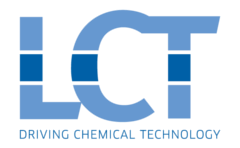Design & characterization of promising zeolite catalysts for dilute methane removal for greenhouse gas mitigation. 1 PhD position, fully funded (4 years).
Aim
Through mechanistic understanding, derive new strategies and material properties to achieve improved total methane oxidation catalysis compatible with dilute, low temperature methane emission streams.
Context
Methane is a potent greenhouse gas, with an especially strong impact on global warming on the short term. Unfortunately, methane emissions are still on the rise, and more so than has long been thought. Recent state of the art tracking technologies have revealed this as an underestimated problem, which will moreover be challenging to tackle using existing technology. Reducing atmospheric methane concentrations has therefore become an urgent concern to the international community, with the challenge emphasized in recent IPCC reports and on various other monitoring platforms.
A novel strategy seeks to address the challenge through innovative reactive trapping. A highly reactive oxygen site on the surface of a heterogeneous catalyst is used to oxidise the relatively inert methane molecule as an adsorbed first oxidation product, effectively ‘oxidatively trapping’ the methane. The most promising materials for this are zeolites with specialized copper and iron active sites. To make these materials work for the intended purpose, certain fundamental hurdles must still be overcome. This requires a better understanding of some of the reaction steps on the catalyst surface.
In this PhD you will use state of the art spectroscopic and kinetic characterisation techniques to develop such understanding. You will join a consortium of researchers from UGent, KU Leuven and Stanford University at the forefront of their research field, and with decades of experience on these copper and iron active sites. In your role you will complement the research of your research partners with characterisation techniques (TAP, modulation excitation spectroscopy, operando XAS, …) that they have not applied to these catalysts before. You will work closely with a PhD student at the nearby KU Leuven, regularly discussing the project, exchanging results and samples, and co-authoring research articles. Your collaborators will complement your PhD with their expertise in synthesis, catalytic testing, (other types of) advanced spectroscopy, and computational chemistry techniques.
Initial overlap with senior PhD students, at KU Leuven as well as UGent, is ensured to enable efficient knowledge transfer of practical knowledge.
Program
• Under the supervision of professor Galvita and a senior postdoctoral researcher (Max Bols), you will prepare a PhD dissertation over a duration of about 4 years. In these 4 years you publish and present results both at international conferences and in scientific journals.
• You will unravel the kinetic role of the various active sites and their interactions. You will in particular become an expert in modulation excitation-DRIFTS, other modulation excitation spectroscopies, and temporal analysis of products (TAP)
• You will participate in synchrotron campaigns
• You will assist the research group with limited educational tasks in topics related to your research.
• Research stays with collaborators (as already specified in the project or when new needs arise during the project) are anticipated and encouraged where useful
